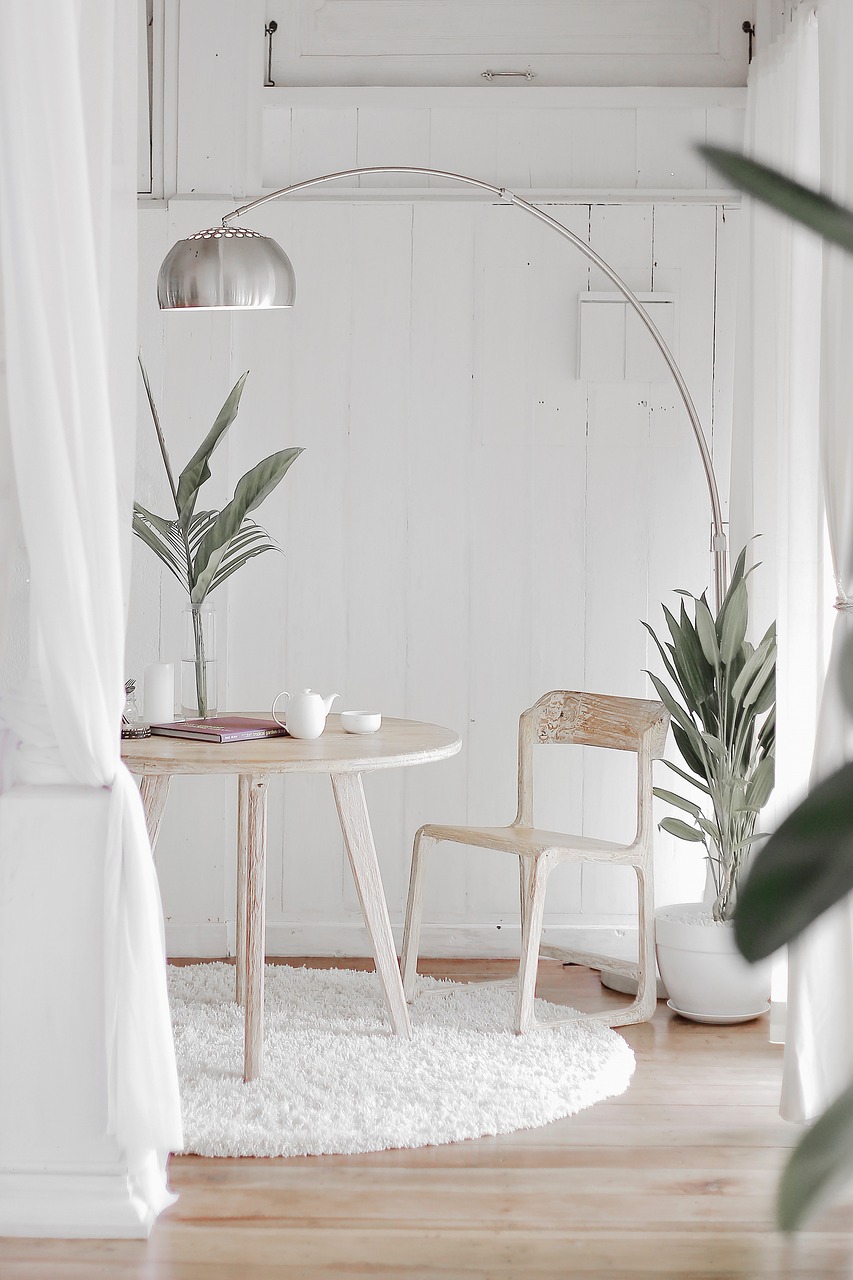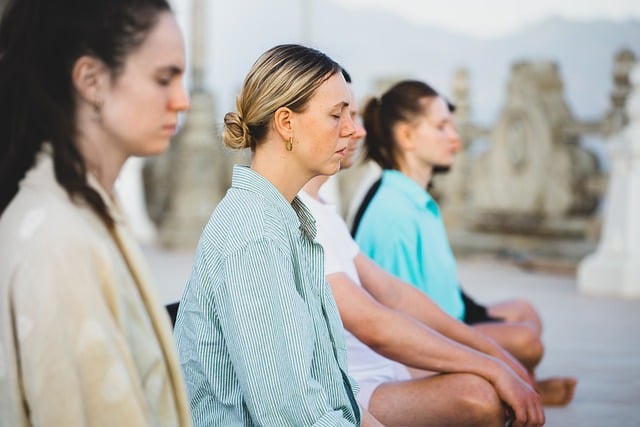
Living in a world where consumerism and constant stimulation are the norm, a minimalist lifestyle offers an alternative approach that encourages simplicity and intentional living. This lifestyle focuses on decluttering one’s physical and mental space, leading to profound effects on both mental and physical health. Below, we explore the myriad ways minimalism can enhance overall well-being and health.
1. Reduces Stress and Anxiety
One of the most immediate benefits of adopting a minimalist lifestyle is the reduction in stress and anxiety levels. Cluttered spaces can lead to sensory overload, making it difficult for the brain to process information efficiently. By decluttering and simplifying living spaces, individuals often experience a sense of calm and mental clarity. This decrease in visual noise allows the mind to relax, resulting in lower stress hormone levels, such as cortisol.
Minimalism extends beyond physical possessions; it can also mean simplifying schedules and reducing commitments. This approach can prevent burnout, providing more time for rest, self-care, and meaningful activities that promote mental well-being. People who practice minimalism often find themselves prioritizing their own health and taking steps to engage in activities that contribute to mental relaxation, such as journaling, meditation, and time spent in nature.
2. Enhances Focus and Productivity
A minimalist environment is conducive to concentration and productivity. With fewer distractions, the brain can maintain focus for longer periods, which is particularly beneficial in work or study settings. Simplifying your workspace, for instance, can lead to more efficient task management and improved work quality.
Moreover, adopting minimalist digital habits, such as decluttering one’s phone or limiting social media usage, can help reduce digital fatigue and improve mental clarity. By reducing the amount of digital content consumed, individuals can create more time for in-depth thinking, problem-solving, and creative pursuits. This fosters a greater sense of achievement and satisfaction with one’s output.

3. Improves Sleep Quality
Minimalism can positively impact sleep by creating a serene and uncluttered bedroom environment. A tidy, minimalist space is often associated with a peaceful atmosphere that promotes better sleep hygiene. Removing unnecessary items from the sleeping area and embracing a clean design can contribute to a more restful sleep, which is essential for both mental and physical health.
Minimalists often adopt routines that prioritize relaxation before bedtime, such as limiting screen time, using calming essential oils, or practicing mindful breathing exercises. These habits, combined with a tranquil sleep environment, can lead to deeper and more restorative sleep cycles, enhancing energy levels and mood during the day.
4. Supports Physical Health
Adopting a minimalist lifestyle can promote healthier physical habits. Minimalists often prioritize quality over quantity, which can extend to food choices. Simplified eating habits often focus on whole, nutrient-dense foods that support overall health. By avoiding processed foods and focusing on fewer but healthier ingredients, minimalism can encourage a balanced diet that fuels the body efficiently.
Minimalism also tends to inspire an active lifestyle. With fewer possessions to manage and less time spent shopping or maintaining material items, more time is available for physical activities such as walking, yoga, or other forms of exercise. This increase in physical activity contributes to better cardiovascular health, weight management, and overall fitness.
5. Promotes Mindfulness and Mental Clarity
Minimalism and mindfulness often go hand in hand. By choosing to live with intention, minimalists become more aware of their thoughts, actions, and surroundings. This heightened sense of awareness can lead to improved mental clarity and a stronger connection to one’s emotions.
Practicing minimalism encourages individuals to focus on what truly matters, which fosters a sense of gratitude and contentment. By removing excess and unnecessary distractions, people can better appreciate the present moment and the simple joys of life. This shift in mindset can significantly improve mental health, leading to lower levels of anxiety and depression.
Mindfulness, supported by minimalism, also teaches individuals to respond rather than react to situations. This ability to approach life’s challenges calmly and thoughtfully enhances emotional stability and resilience, contributing to long-term mental health benefits.

6. Encourages Sustainable Living
Minimalism aligns closely with sustainable and eco-friendly living. By choosing to own and consume less, minimalists contribute to a reduction in waste and a lower environmental footprint. This practice not only benefits the planet but also instills a sense of purpose and fulfillment, knowing that one’s lifestyle choices positively impact the world.
Living sustainably can also reduce the stress associated with overconsumption and financial pressures. A simpler lifestyle often involves buying fewer but higher-quality items, which can lead to long-term savings and a reduced need for financial stressors. Additionally, minimalism encourages the use of reusable and eco-friendly products, which can further enhance an individual’s commitment to environmental health.
The practice of sustainable minimalism is also connected to slow living—a movement that emphasizes quality over speed. This approach helps individuals savor life’s moments and build a stronger connection to the environment, contributing to a holistic sense of well-being.
7. Boosts Emotional Resilience
Minimalism helps cultivate emotional resilience by encouraging a focus on experiences and relationships rather than material possessions. This shift can lead to stronger social connections and deeper interpersonal relationships, which are crucial for emotional health. People who prioritize meaningful interactions over material goods often report higher levels of happiness and satisfaction.
Living with fewer possessions also means becoming more adaptable and resourceful. This adaptability can improve coping mechanisms during challenging situations, fostering a stronger sense of self-reliance and confidence. The ability to face difficulties with less attachment to material comforts builds emotional strength, allowing individuals to better handle life’s uncertainties.
8. Simplifies Decision-Making
A minimalist lifestyle can streamline decision-making by reducing the number of choices one needs to make daily. Whether it’s adopting a capsule wardrobe or following a simplified meal plan, minimizing options can lead to more consistent habits and less decision fatigue. This simplicity frees up mental energy for more significant decisions, leading to improved cognitive health and overall well-being.
Minimalism promotes a structured approach to prioritizing what matters most. For instance, when minimalists decide to own fewer clothing items, they often choose versatile pieces that match easily, reducing the stress of daily outfit decisions. Similarly, simplifying meals to focus on fresh, whole foods eliminates the overwhelm of deciding between numerous food options, leading to a healthier diet.
9. Benefits of Minimalist Spaces for Physical Health
Minimalist spaces are easier to clean and maintain, reducing exposure to dust, allergens, and pollutants. This contributes to improved air quality and a healthier living environment, which is particularly beneficial for those with allergies or respiratory issues.
A decluttered space often motivates individuals to adopt other healthy habits, such as regular exercise or practicing yoga at home. The calming atmosphere of a minimalist space can be the perfect backdrop for meditation or other stress-relief activities. The simplicity of such an environment encourages a deeper connection to self-care routines, leading to long-term physical health benefits.
Conclusion
The minimalist lifestyle goes beyond simply owning fewer possessions; it is a holistic approach that can lead to significant mental and physical health benefits. From reducing stress and enhancing focus to promoting sustainability and emotional resilience, minimalism can transform one’s overall well-being. By embracing simplicity and intentional living, individuals can foster a healthier, more balanced life.
Subscribe to our newsletter, follow us on social media to let us know how you’re working towards a balanced life!
Oral Health: Causes, Prevention, and the Role of Nutrition
Oral health is often a neglected part of our...
Food Allergies: Causes, Symptoms, and Management
Food allergies and sensitivities are...
Unintentional Weight Loss
Unintentional weight loss can be distressing,...
The Negative Impacts of Plastic Usage on Health and the Environment
Plastic has revolutionized modern life,...
The Impact of Social Media on Body Image: How It Affects Women’s Health
Social media has transformed how we connect,...
Why Women Need Nutrition Counseling Beyond Weight Loss
Women face unique challenges when it comes to...
The Benefits of Journaling for Mental Health
Journaling has gained recognition as a powerful...
Physical activity: Cardio, Strength Training, Yoga, and Pilates
Engagement in regular physical activity is...
Women’s Hormonal Balance: Nutrition, Lifestyle, and Key Strategies for Optimal Health
Introduction Women's hormonal balance is a...










